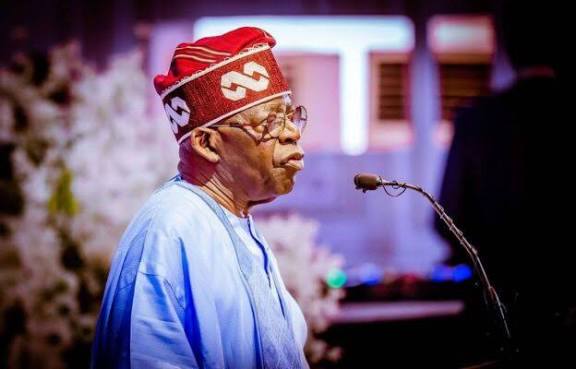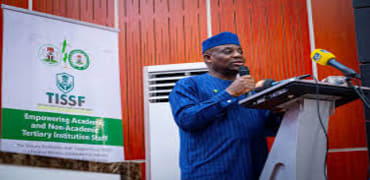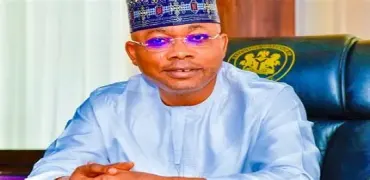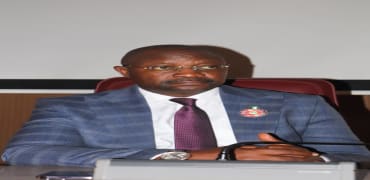PRESIDENT TINUBU IS COMMITTED TO INCLUSIVE GROWTH
PRESIDENT TINUBU IS COMMITTED TO INCLUSIVE GROWTH
By Sunday Dare
While Nigeria values its long-standing partnership with the World Bank and the institution’s contributions to policy analysis, the figure quoted must be properly contextualized.
Reassessing the “139 million in poverty” figure
There must be caution against interpreting the World Bank’s number as a literal, real-time headcount. The estimate is derived from the global poverty line of $2.15 per person per day—a benchmark set in 2017 Purchasing Power Parity (PPP) terms. If converted nominally, that figure equals about $64.5 per month, or nearly ₦100,000 at today’s exchange rate—well above Nigeria’s new minimum wage of ₦70,000. Clearly, the measure is an analytical construct, not a direct reflection of local income realities.
Poverty assessment under PPP methodology uses historical consumption data (Nigeria’s last major survey was in 2018/19) and often overlooks the informal and subsistence economies that sustain millions of households. The government therefore regards the figure as a modelled global estimate, not an empirical representation of conditions in 2025. What truly matters is the trajectory—and Nigeria’s is now one of recovery and inclusive reform.
Concrete measures to cushion economic hardship
President Bola Ahmed Tinubu’s administration remains firmly focused on improving household welfare through targeted, verifiable interventions:
•Conditional Cash Transfers (CCT): Expanded to reach up to 15 million households nationwide, with verified digital enrolment through the National Social Register. Over ₦297 billion has been disbursed since 2023 to poor and vulnerable families.
•Renewed Hope Ward Development Programme (RH-WDEP): A major new initiative targeting all 8,809 electoral wards, delivering micro-infrastructure, livelihoods, and social services directly at community level.
•National Social Investment Programmes (NSIPs): Strengthened components such as N-Power, GEEP micro-loans (TraderMoni, MarketMoni, FarmerMoni), and Home-Grown School Feeding to protect jobs, encourage small enterprise, and keep children in school.
•Food Security Initiatives: Distribution of subsidised grains and fertilisers, mechanisation partnerships, and the revival of strategic food reserves to curb inflationary pressure on staples.
•Renewed Hope Infrastructure Fund (RHIF): Financing critical energy, road, and housing projects to lower living costs and stimulate local employment.
•National Credit Guarantee Company (NCGC): Expanding affordable credit to small businesses, women, and youth entrepreneurs through risk-sharing mechanisms with commercial banks.
Contextualizing the poverty challenge
World Bank’s assessment must understand the long-standing structural distortions that this administration is actively correcting — including overdependence on imports, productivity constraints, and regional inequality.
Reforms such as fuel subsidy removal, exchange rate unification, and fiscal redirection toward productive sectors are difficult but necessary choices to tackle the root causes of poverty rather than its symptoms. Even the World Bank itself has acknowledged that these reforms are already restoring macroeconomic stability and renewed growth momentum.
Ensuring growth translates to real welfare gains
Economic recovery alone is not enough; it must be inclusive. The government’s medium-term focus is on ensuring that macroeconomic stability results in tangible gains for citizens—through affordable food, quality jobs, and reliable infrastructure.
Investments are being ramped up in agriculture, MSMEs, and power reliability. The agricultural value chain expansion programme, new gas-to-power initiatives, and skills development hubs are designed to create jobs and reduce living costs. Nigerians should begin to feel more visible improvements in food prices, income, and purchasing power as these programmes mature.
Consolidating social protection for greater impact
The government is strengthening and consolidating, not merely reviewing, its social investment architecture. By integrating all welfare interventions under a unified, data-driven framework, the administration is improving transparency, digital targeting, and accountability.
This includes the scaling up of existing NSIP schemes, the ongoing expansion of the National Social Register, and the rollout of the Renewed Hope Ward Development Programme (RH-WDEP)—ensuring no vulnerable community is left behind.
In summary
President Tinubu’s administration is committed to reducing the incidence of poverty.
Nigeria rejects exaggerated statistical interpretations detached from local realities. The government remains focused on empowering households, expanding opportunity, and building a resilient, inclusive economy where growth translates directly to improved living standards.
The reforms are necessary. The direction is right. The foundation for a fairer and more prosperous Nigeria is being firmly laid.

















